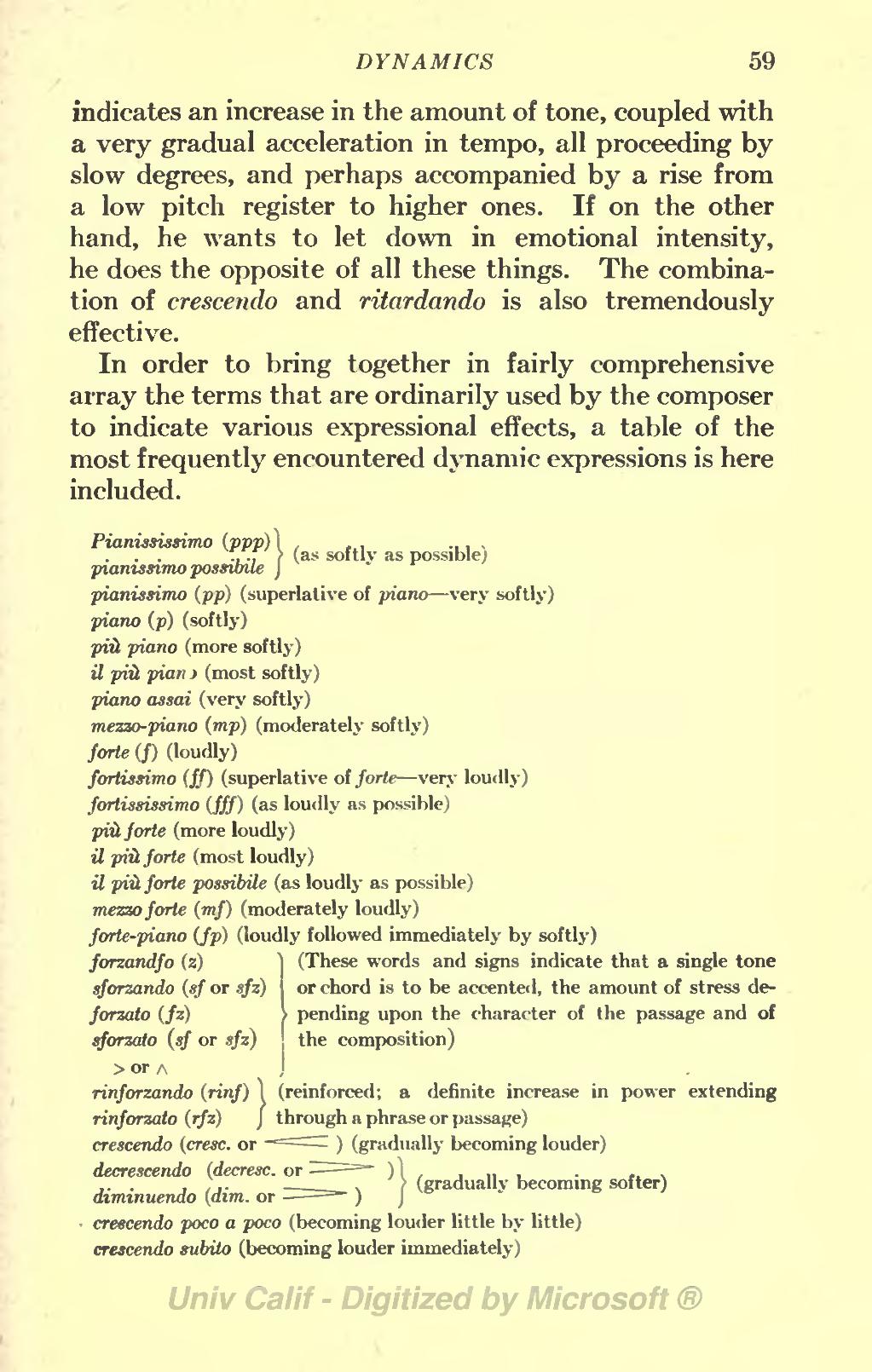indicates an increase in the amount of tone, coupled with a very gradual acceleration in tempo, all proceeding by slow degrees, and perhaps accompanied by a rise from a low pitch register to higher ones. If on the other hand, he wants to let down in emotional intensity, he does the opposite of all these things. The combination of crescendo and ritardando is also tremendously effective.
In order to bring together in fairly comprehensive array the terms that are ordinarily used by the composer to indicate various expressional effects, a table of the most frequently encountered dynamic expressions is here included.
| Pianississimo (ppp) |
 (as softly as possible) (as softly as possible)
|
| pianissimo possible
|
| pianissimo (pp) (superlative of piano—very softly)
|
| piano (p) (softly)
|
| più piano (more softly)
|
| il più piano (most softly)
|
| piano assai (very softly)
|
| mezzo-piano (mp) (moderately softly)
|
| forte (f) (loudly)
|
| fortissimo (ff) (superlative of forte—very loudly)
|
| fortississimo (fff) (as loudly as possible)
|
| più forte (more loudly)
|
| il più forte (most loudly)
|
| il più forte possibile (as loudly as possible)
|
| mezzo forte (mf) (moderately loudly)
|
| forte-piano (fp) (loudly followed immediately by softly)
|
| forzandfo (z) |
 (These words and signs indicate that a single tone or chord is to be accented, the amount of stress depending upon the character of the passage and of the composition) (These words and signs indicate that a single tone or chord is to be accented, the amount of stress depending upon the character of the passage and of the composition)
|
| sforzando (sf or sfz)
|
| forzato (fz)
|
| sforzato (sf or sfz)
|
> or 
|
| rinforzando (rinf) |
 (reinforced; a definite increase in power extending through a passage) (reinforced; a definite increase in power extending through a passage)
|
| rinforzato (rfz)
|
crescendo (cresc. or  ) (gradually becoming louder) ) (gradually becoming louder)
|
decrescendo (decresc. or  ) ) |
 (gradually becoming softer) (gradually becoming softer)
|
diminuendo (dim. or  ) )
|
| crescendo poco a poco (becoming louder little by little)
|
| crescendo subito (becoming louder immediately)
|



